Papers by Emmanuelle OLIVIER
Journal of New Music Research
HAL (Le Centre pour la Communication Scientifique Directe), 2005
HAL (Le Centre pour la Communication Scientifique Directe), 2022
HAL (Le Centre pour la Communication Scientifique Directe), May 29, 2015
HAL (Le Centre pour la Communication Scientifique Directe), 2022
HAL (Le Centre pour la Communication Scientifique Directe), Oct 19, 2022
In the cosmopolitan city of Abidjan, various music traditions from Western Africa and beyond meet... more In the cosmopolitan city of Abidjan, various music traditions from Western Africa and beyond meet and hybridize with globalized black music genres such as reggae and hip hop. Based on ethnographic data collected in local recording studios, we describe the career of five studio professionals, namely Tupaï, Patché, Gabe Gooding, Charlie Kamikaze, and Lyle Nak; and we report on the workflow and digital signal processing events of three recording sessions. Our analyses reveal that the creative processes of Ivorian studio professionals are centered on remaking or remixing instrumentals that they retrieve from the web or from their past productions. We conclude with our plans for future collaborations with these practitioners and the female network Les Femmes Sont…founded by Lyle Nak.
HAL (Le Centre pour la Communication Scientifique Directe), Oct 19, 2022
HAL (Le Centre pour la Communication Scientifique Directe), 2017
HAL (Le Centre pour la Communication Scientifique Directe), 2014
HAL (Le Centre pour la Communication Scientifique Directe), Nov 2, 2021
Tout comme le Lesotho, le Swaziland est un petit pays enclavé à l’intérieur de l’Afrique du Sud d... more Tout comme le Lesotho, le Swaziland est un petit pays enclavé à l’intérieur de l’Afrique du Sud dont les habitants, les Swazi, ou plutôt Swati (du nom de leur souverain Mswati II qui régna au tout début du XXe siècle), arrivés au XVIe siècle près de la baie de Maputo (actuel Mozambique), puis vers 1750 dans la partie septentrionale de l’actuel Zululand (Afrique du Sud), se constituèrent en nation au début du XIXe siècle, répondant ainsi à la menace de Chaka Zulu. Si leur histoire est bien doc..
International Workshop "Opening the Doors of the Studio", Jun 24, 2019
HAL (Le Centre pour la Communication Scientifique Directe), Oct 28, 2019
étrangers depuis plus longtemps encore. Voir notamment Amico (2020) qui décrit son séjour à Tombo... more étrangers depuis plus longtemps encore. Voir notamment Amico (2020) qui décrit son séjour à Tombouctou en 2010 dans le cadre du Festival du désert, sous la protection de l'armée malienne. Voir également les communications de Kawélé Togola et de Youssouf Karambé à l'École d'Automne 2019 du LMI MaCoTer « Les sciences sociales dans la crise. Pratiques de recherche et production de savoirs en situation de conflit : 3 Sud de la ligne Bafoulabé -Koulikoro -Morila. Voir : voyageurs/conseils-par-pays-destination/mali/#securite.
HAL (Le Centre pour la Communication Scientifique Directe), 2005
HAL (Le Centre pour la Communication Scientifique Directe), Jun 8, 2017
HAL (Le Centre pour la Communication Scientifique Directe), 2005
HAL (Le Centre pour la Communication Scientifique Directe), 2015
HAL (Le Centre pour la Communication Scientifique Directe), 1992
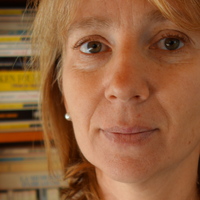

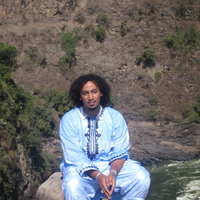
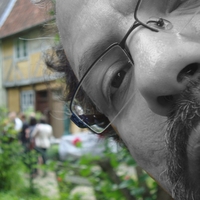



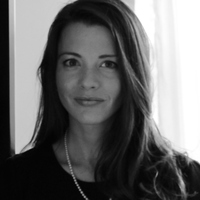
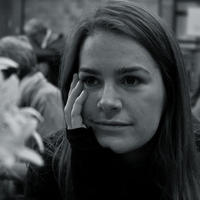

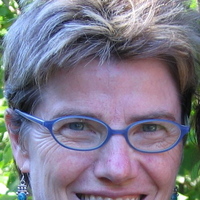
Uploads
Papers by Emmanuelle OLIVIER
"As digital technologies set off new modes of writing, listening, exchanging, circulating and data storaging, as well as new forms of authority, economies and types of relationships to time and to the world, this set of texts questions notions of musical and choreographic creation in our globalized context. Through a series of case studies which go beyond the North/South, written/oral, learned/popular and sacred/secular dichotomies, we better understand how these practices participate in the same regime of creation which either integrates or puts in tension two logics, one of renewal, another one of innovation. These practices of composing and recomposing are also questioned in terms of regimes of authority. The interest of this approach is to show that, in various regions of the world, alternative solutions to “copyright” systems, certain old, others more recent, have been set up and are henceforth part of the new service economies sparked off by the democratization of digital technologies.
Table of contents here: http://www.cairn.info/revue-volume-2014-1.htm"